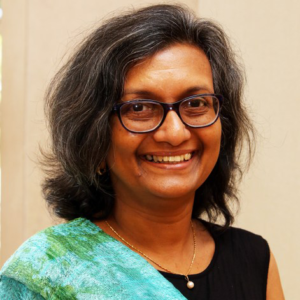Sri Lanka’s care diamond is highly skewed towards families/households and communities. 87% percent of women and 60% of men engage in unpaid domestic work or care work. Women perform 86% of all unpaid work in Sri Lanka and Sri Lankans on average spend 3.7 hours or 15% of a 24-hour day on unpaid domestic and care work.
The paid care work sector is quite small in Sri Lanka. Paid care employees account only for 2-3% of paid employees, 91% of them female. Domestic workers account for one-third of paid care. These workers are mainly from historically disadvantaged communities and work long hours — 54 hours per week on average. 91% percent of them are in the private sector, representing market care; only 9% of paid care workers are employed by the state.
The value of unpaid housework, care work, and voluntary work in Sri Lanka ranges from 10% (minimum wage valuation) to 42% (generalist wage, upper bound valuation) of the country’s GDP. At the specialist wage, it is 14% of GDP. These values represent a considerable share of GDP and are larger than those of the agriculture sector.
Cover Image Credit: Wikimedia Commons
Project Lead
-

Dileni Gunewardena
Researcher
Collaborators
-
Venya De Silva
Researcher
-

Nishan De Mel
Researcher
-
Samanmala Dorabawila
Researcher

